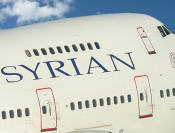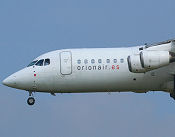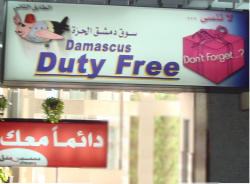 According to this article in the New York Times, the Obama administration announced today more easing of the sanctions against Syria, stating that it would begin expedited case-by-case consideration of export licenses to Syria:
According to this article in the New York Times, the Obama administration announced today more easing of the sanctions against Syria, stating that it would begin expedited case-by-case consideration of export licenses to Syria:
The move will particularly affect “requests to export products related to information technology and telecommunication equipment and parts and components related to the safety of civil aviation,†said a State Department spokesman, Andrew J. Laine.
Sanctions on Syria were imposed by Congressional mandate pursuant to the Syrian Accountability and Lebanese Sovereignty Restoration Act of 2003. Section 5 of that Act required the President to block exports of all items on the United States Munitions List and the Commerce Control List to Syria. It also required the President to impose at least two of six specific sanctions set forth in the legislation. The two that he selected were, first, the ban on all exports to Syria other than food and medicine and, second, a prohibition on Syrian aircraft landing in, or overflying, the United States (with the exceptions of aircraft carrying Syrian government officials on government business in the United States).
In implementing the Act and the Executive Order, BIS had considered, on a case-by-case basis license applications to export medical devices, aircraft parts and telecommunications equipment. In February of this year, BIS approved the export of aircraft parts to put two mothballed Syrian Arab Airlines 747s back in service.
Section 5(b) of the Syria Accountability Act permits the President to waive any of the acts required export controls if the President finds that such a waiver is in the interest of national security and reports those reasons to the relevant Congressional committees. Although Andrew Laine’s statement re-affirms the more liberal policy towards aircraft parts and telecommunications, the White House’s statements also suggest that the waiver power may be exercised outside the pre-existing categories of medical devices, aircraft parts, and telecommunications equipment.
One area the the White House should consider further liberalizing would be medical devices and the elimination of a license requirement for exports to Syria of medical devices. Under the Trade Sanctions Reform and Export Enhancement Act of 2000 (“TSRA”), medical devices could be exported to Syria without a license. Because the Syria Accountability Act only referred to exceptions for “food and medicine,” the prior administration had interpreted this as over-ruling TSRA and as requiring licenses for medical devices, even though it seems likely that the phrase “food and medicine” was simply a sloppy reference to TSRA and not intended to affect the status of medical devices. Use of the waiver procedure under section 5(b) would allow the President to correct this mistake.

 Posted by
Posted by  Category:
Category: 


 Country-based sanctions start to get leaky in the age of the Internet. How does a software download service know whether or not it’s providing a service to an individual in a sanctioned country?
Country-based sanctions start to get leaky in the age of the Internet. How does a software download service know whether or not it’s providing a service to an individual in a sanctioned country? As previously
As previously  The Office of Foreign Assets Control (“OFAC”) today continued its
The Office of Foreign Assets Control (“OFAC”) today continued its 

